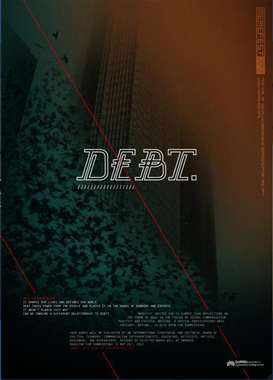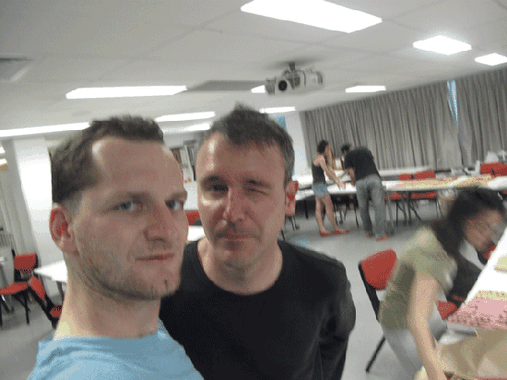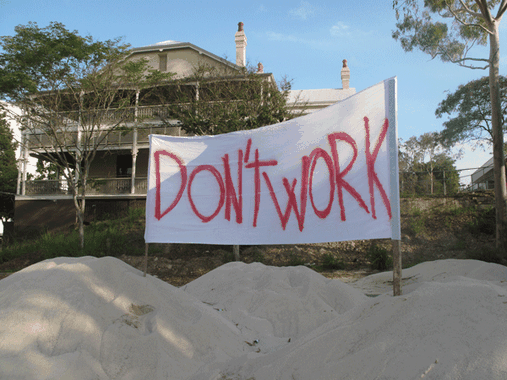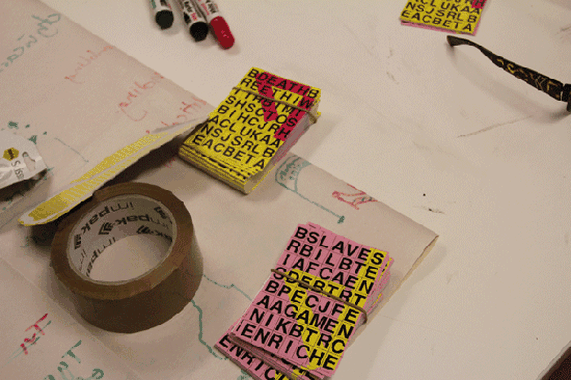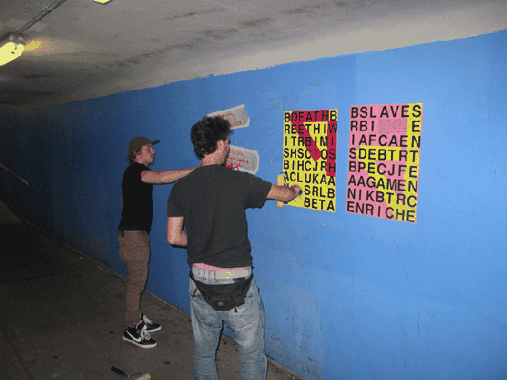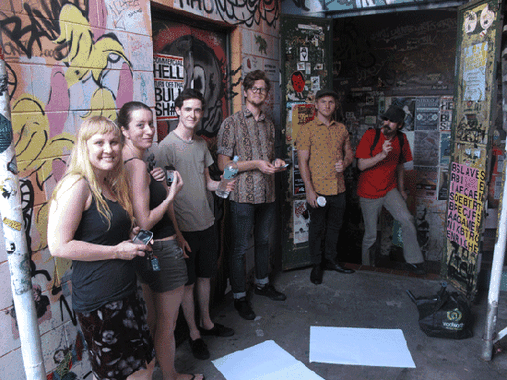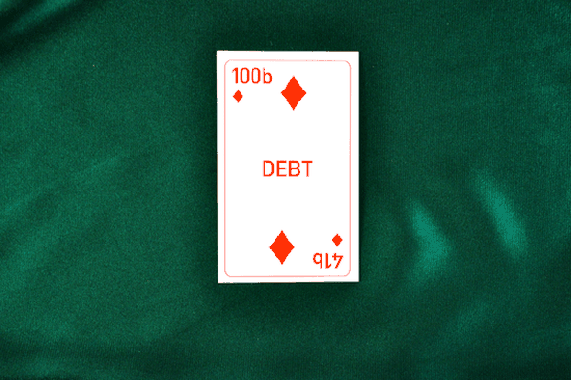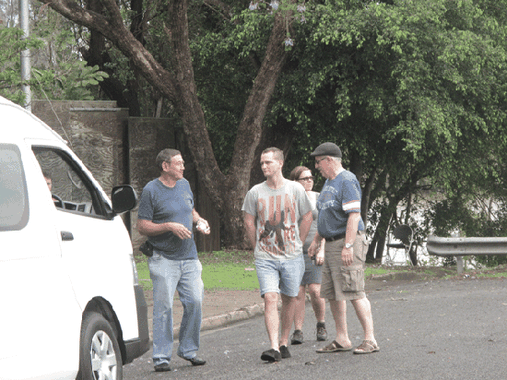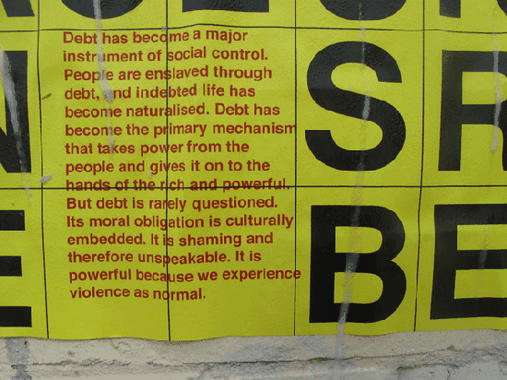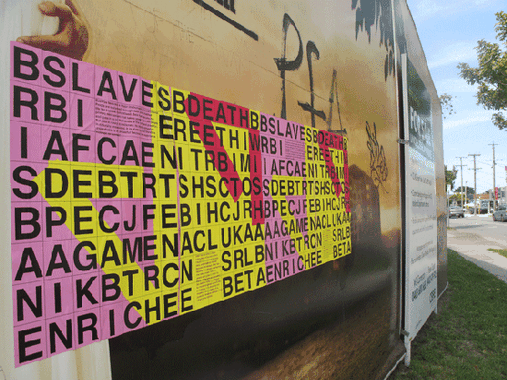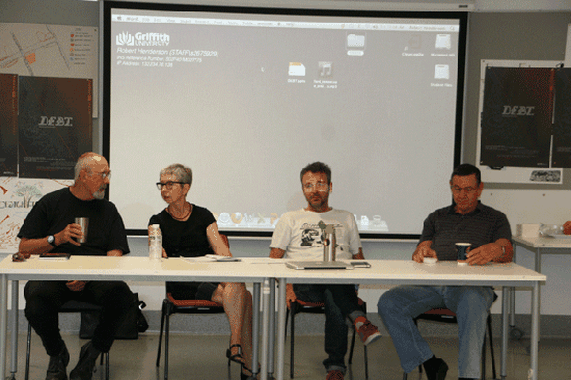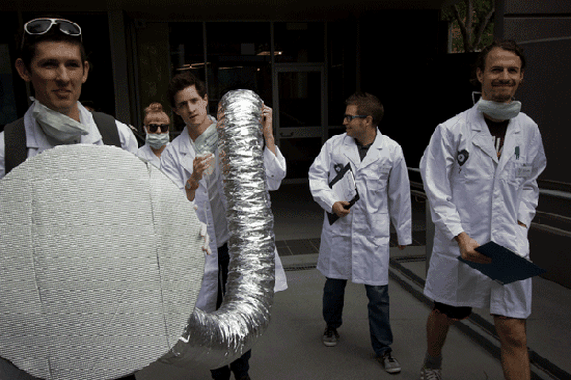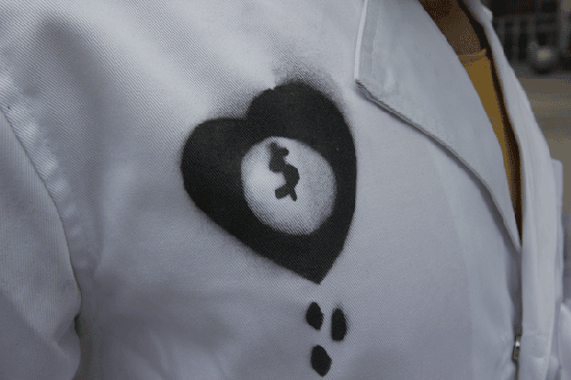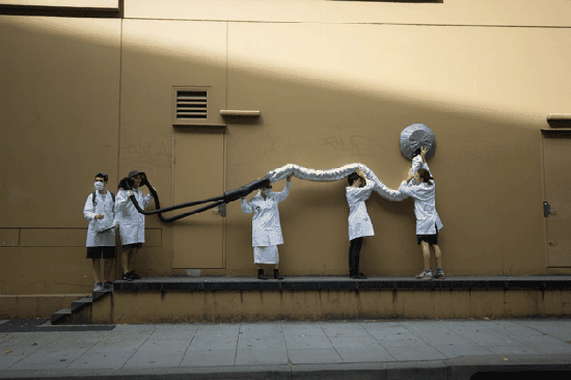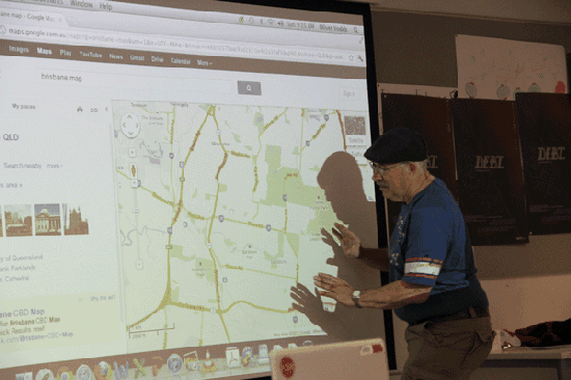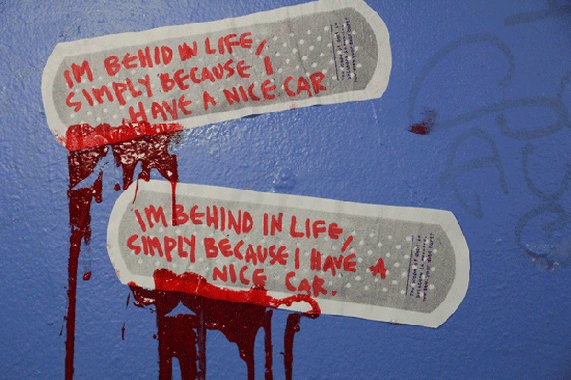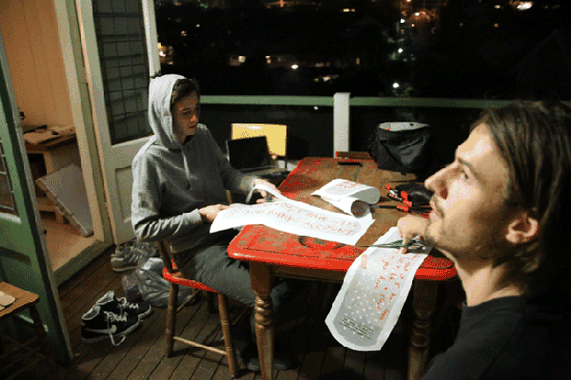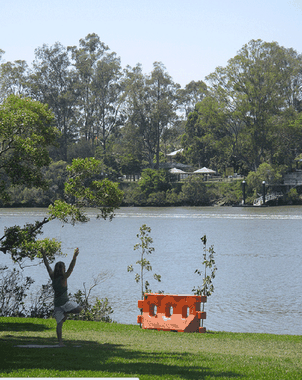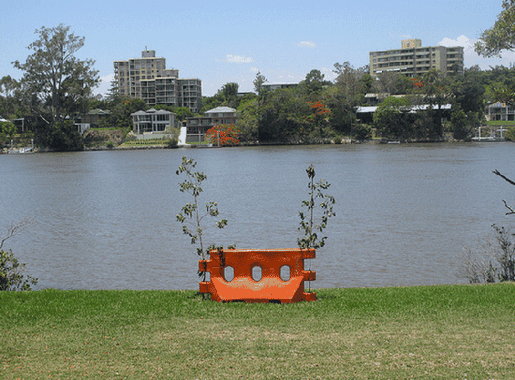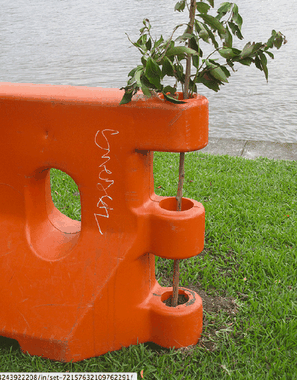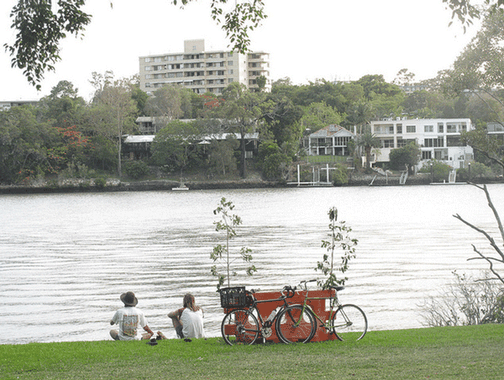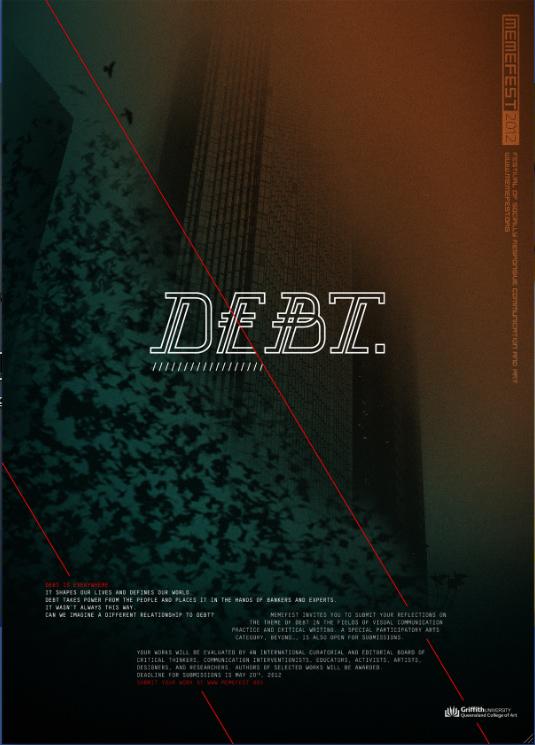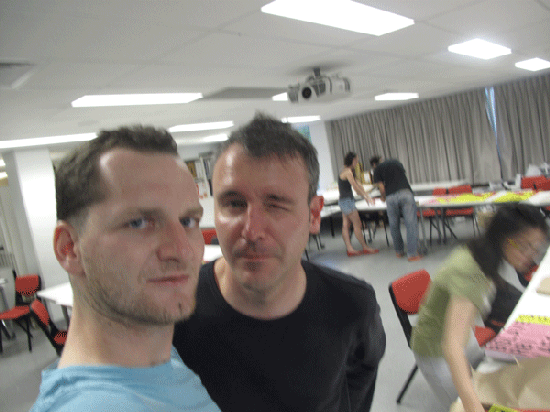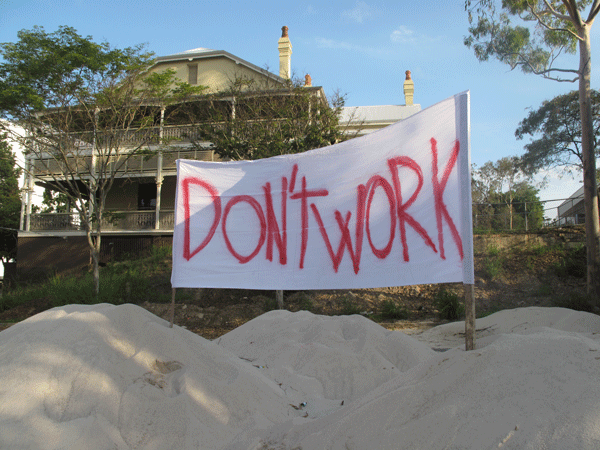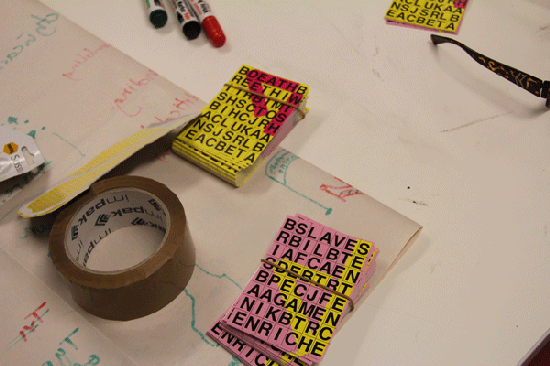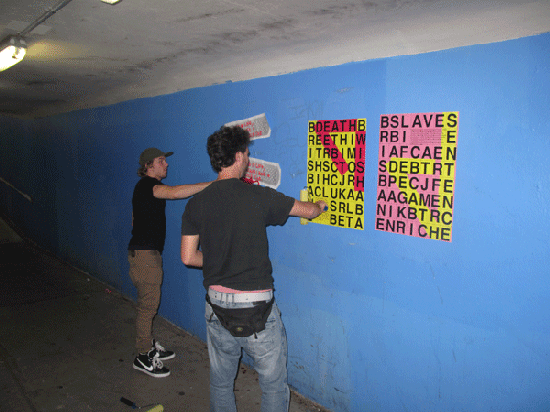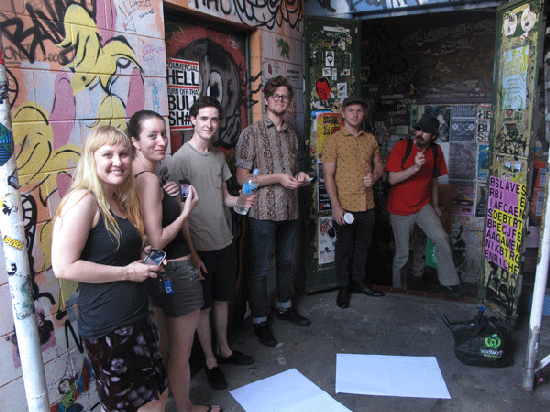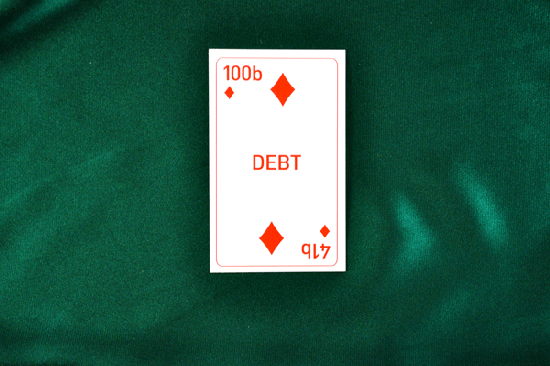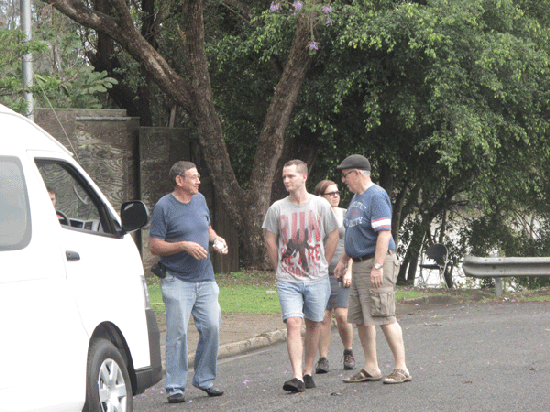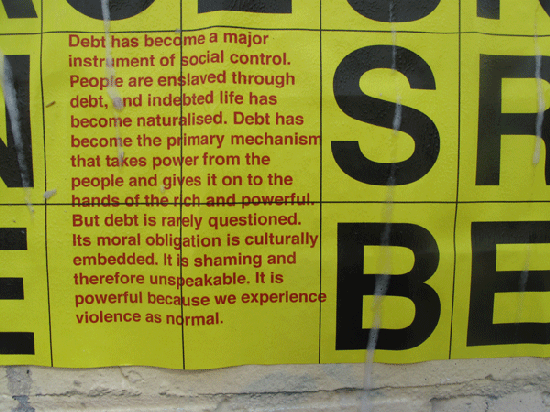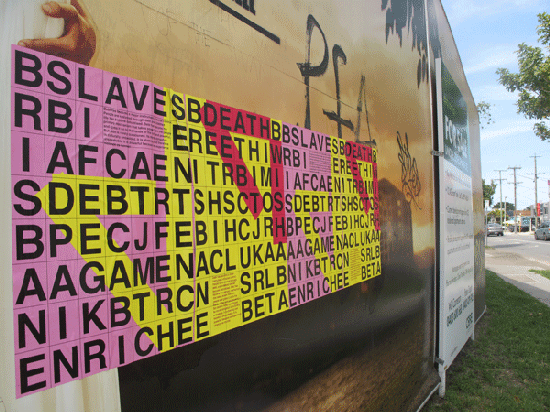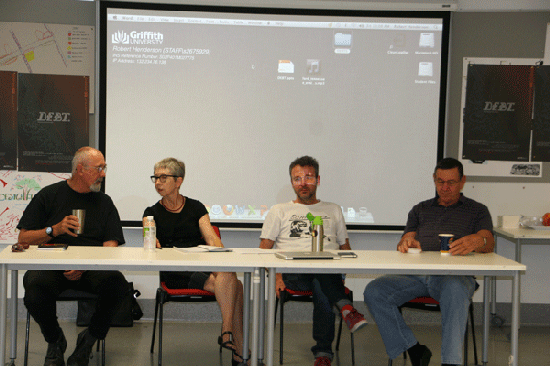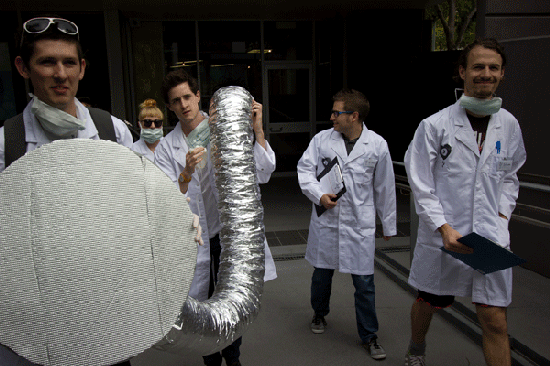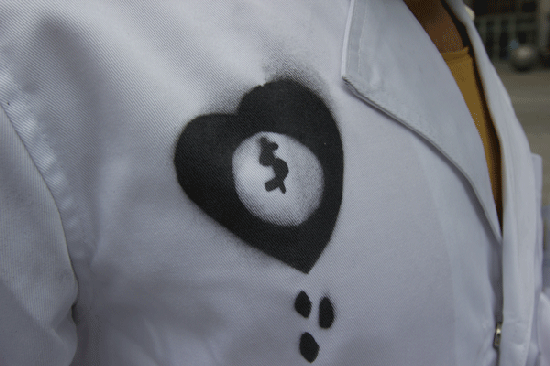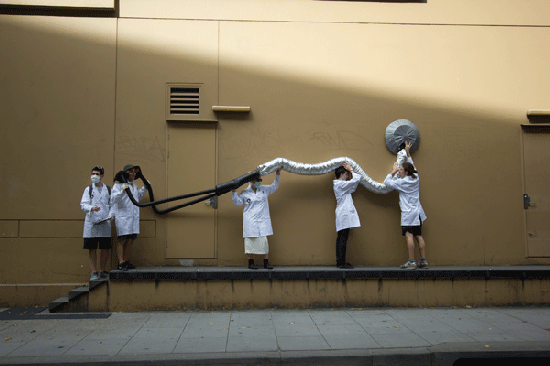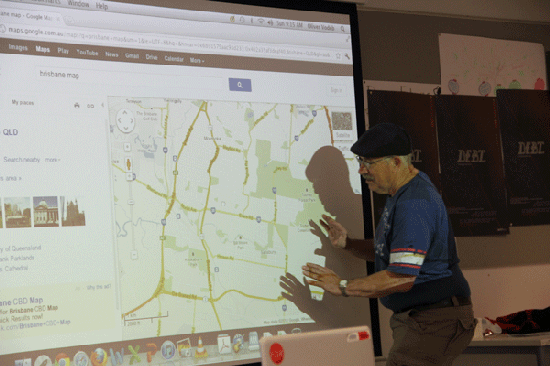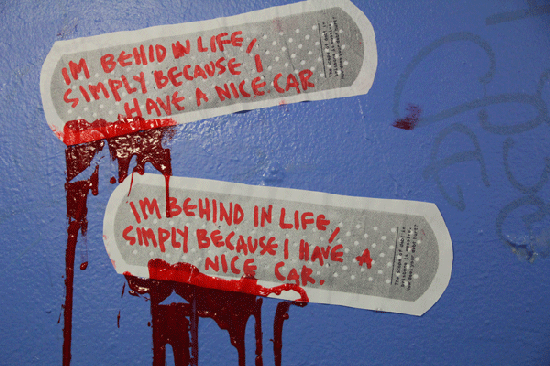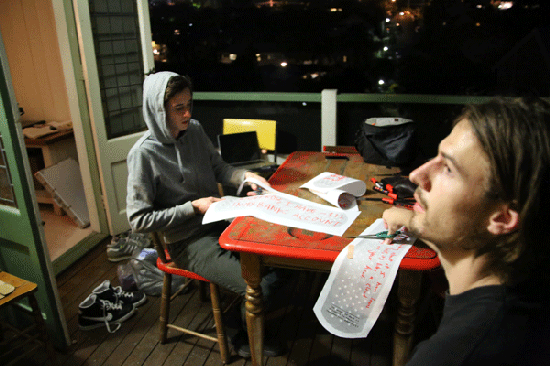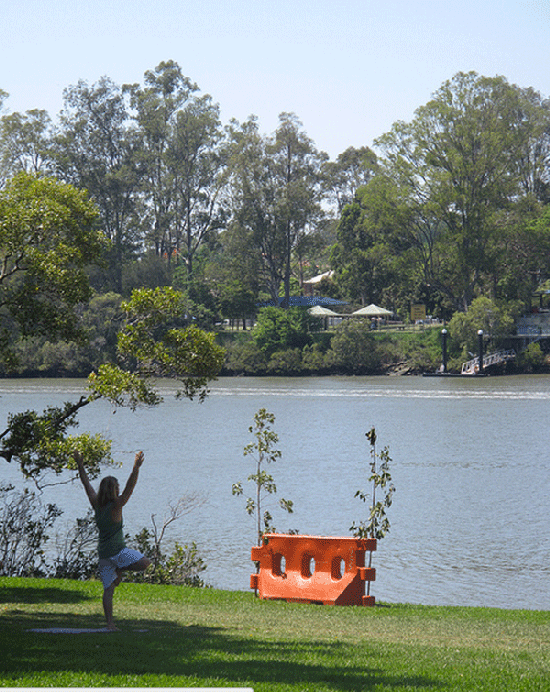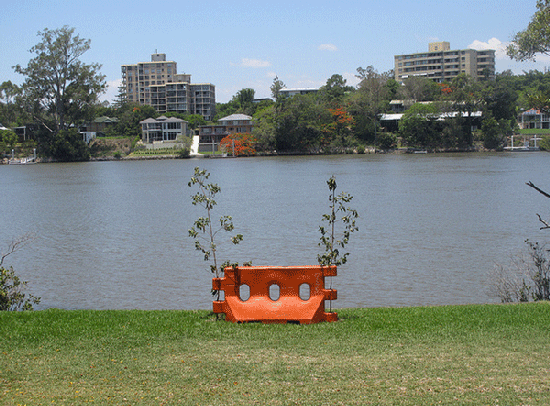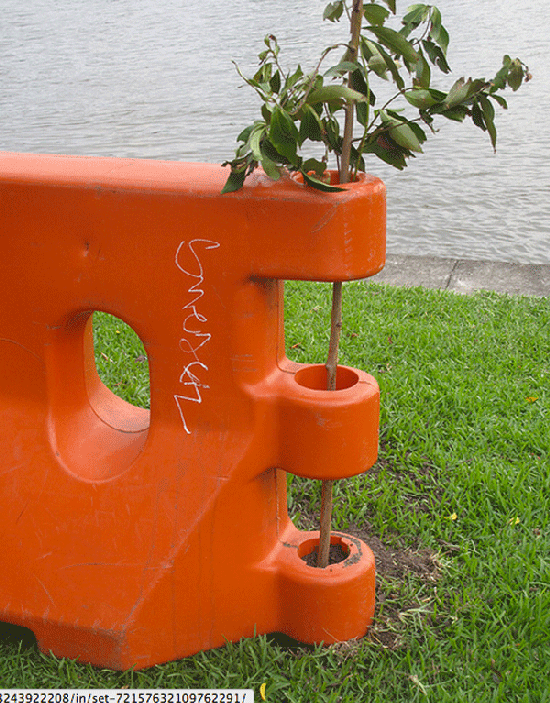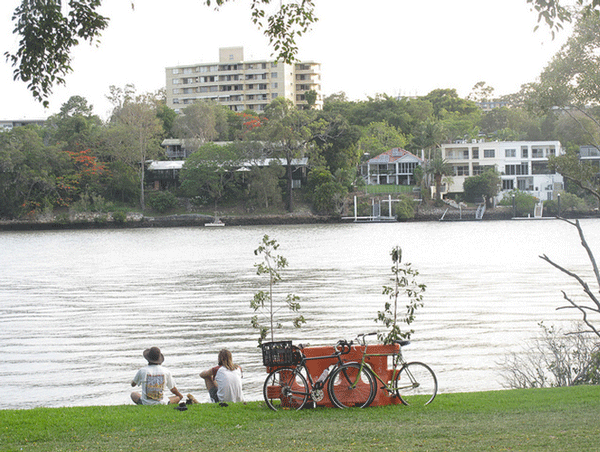Re-Imagining DEBT, Brisbane
2012
The event was conceptualised around DEBT as an instrument for social control. Our aim was to investigate DEBT in Brisbane and to intervene in the public space of the city. An intensive ten day process with international participation resulted in new research and interventions on DEBT implemented in the streets of Brisbane for the first time. Twenty five people have worked on this collaboration which was part of the first international Memefest/QCA award for Imaginative Critical Intervention.
The importance of critically researching DEBT can hardly be exaggerated. DEBT has become a major instrument of social control. Millions are victims of DEBT, and indebted life has become naturalised. DEBT has become the primary mechanism that takes power from the people and gives it on to the hands of the rich and powerful. But DEBT is rarely questioned. Its moral obligation is culturally embedded. It is shaming and therefore unspeakable. Its power lies in its violent normalcy.
The ten days have been designed as a focused semi/structured event. First there was a two day intensive theory/practice seminar. This was followed by field research, a tour around chosen DEBT related Brisbane suburbs. Four groups worked on concrete interventions that culminated in three bigger projects and several smaller once.
First Memefest/Queensland College of Art extradisciplinary symposium/workshop/intervention, here in Brisbane, happened in late November 2012. We invited a diverse international group to research DEBT further for ten days, to learn about it in relation to Brisbane and to intervene.
Through Memefest’s festival process DEBT was first researched in thirty-five countries. Our aim was to develop a thorough investigation on DEBT from a radical design + communication perspective. The process was largely inspired by David Graeber's book DEBT, The First 5000 Years and the Occupy movement.
This event was the next logical step after we finished the online global frinedly competition. The face-to-face gathering, the extradisciplinary dimension that brings marginal, critical, countercultural positions in relation with established institutions promised to be an intense process. Participants came from different countries and cultural backgrounds- students, researchers, professors, professionals, activists and artists. Many of us were connected through both the Memefest and the QCA (Design Futures) network formally and/ or informally. Some of us were already friends, and some were about to become.
The context of the event tried to break down certain established relations. The student/ professor relation was changed as the context became informal and the process situated outside the regular curriculum. Memebers of the community and radical social moveement groups became equal part of the process. The relationships to our institutions were productively questioned and limitations for our work have been explored. The relationship to our disciplines needed to be rearticulated in the light of breaking out of them and connecting with the extradisciplinary- marginal, countercultural positions outside of disciplines and institutions. Above all this was an opportunity of collaboration and self organisation.
This time we have been focusing on one place- the city of Brisbane. As Queensland’s capital and the third biggest city in Australia, Brisbane plays a major role in the region’s economy. While DEBT is a technique through which individual and collective subjectivities are governed and controlled, its image is officially related to freedom and progress. The workshop aimed to explore these contradictions and ways to expose them in the public sphere. While most interventions end up in aestheticized gesturalism, what we were interested in, is stepping out of the private self in which persons are formally enclosed and a split from the social order that imposed that particular type of position in the first place. An intimate encounter with DEBT. An intimate encounter with each other, our institutional contexts and with our selves. This, as we learned, can be very difficult.
As part of the working concept we have framed four main steps that are in our opinion necessary to achieve a change in the logic DEBT creates. First: knowledge that acquires agency. Second: interventions that create a rupture in the order of things with the goal to redefine our fields of experience and the relationship between being, doing and saying. Third: dialogue. Fourth: creating new emancipatory social institutions.
Participation was by invitation only; The whole process was mentored by George Petelin, Anne – Marie Wilis, Jason Grant, Tony Fry and Oliver Vodeb. Three awardees: Ivan Kozenitzky, Vladimir Turner and Søren Rosenbak, recipients of the first Memefest/ Queensland College of Art Award for Imaginative Critical Intervention were invited and flown in to Brisbane. Other participants were our great QCA students, engaged members of the local Brisbane community, as well as- surveillance studies scholar Dr Mark Andrejevic from University of Queensland, visual communication lecturer/tutor from University of Ballart, Ben Mangan (who also worked with his students on DEBT) and Southbank Tafe lecturer/ tutor Manfred Huber.
The collaborators, participants, curators, mentors and conspirators were Ashlea Gleeson, Jack Loel, Darcy Mangan, Belinda Li, John Nicholson, Emma Bergman, Anna May, Charles Mayfield, Jordan McGuire, Yeuk Nam Lee, Elliot Crombie, Manfred Huber, Ben Mangan, Eleni Kalantidou, Ivan Kozenitzky, Vladimír Turner, Soeren Rosenbak, Zoe Yakimoff, Melanie Gupta, David Sargent, Jason Grant, Tony Fry, Anne-Marie Willis, Shaun Cruickshank, George Petelin and Oliver Vodeb.

